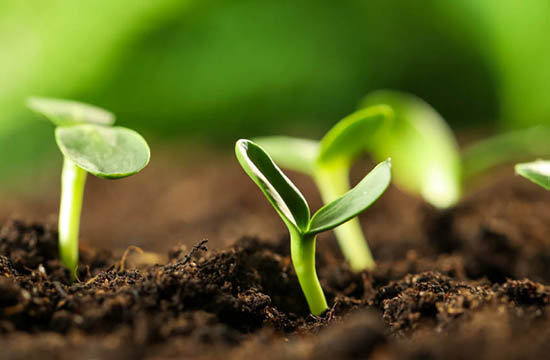As we journey through the 21st century, the modern agricultural industry grapples with many challenges that make farming increasingly complicated. These problems have far-reaching consequences for our global food security, the environment, and the socioeconomic well-being of rural communities.
And as the backbone of humanity’s food supply, farmers must maneuver through these obstacles and adapt to changes while innovating to stay afloat. However, by implementing sustainable farming practices, embracing new technology, and collaborating with policyholders within our communities, we can all pitch in to create a more resilient agricultural sector that benefits everyone.
Read on to learn more about the challenges farmers face and opportunities for growth across the agricultural industry as a whole.
What Are Some of the Most Pressing Problems Farmers Face?
Farmers today are confronted with a variety of challenges that fundamentally test the resilience of modern agriculture, for example:
- The depletion of valuable resources necessary to sustain modern farms
- Farmland degradation and undervaluing its capacity
- A disconnected public perspective and demographic changes
- The conversion of rural land for urban development
- The erosion and detachment of soil particles by natural forces
Resource Depletion
Resource depletion is one of the primary concerns modern farmers need to consider. The global population is growing, meaning the demand for food and other agricultural products is increasing, which puts a strain on the finite resources available to them.
In many regions, water quality and scarcity is a pressing concern that impacts livestock production and irrigation. The fact of the matter is that farming uses a lot of the global water supply; farming alone uses 70% of the world’s freshwater supply.
Farmers face the challenge of managing water resources efficiently, driving them to adopt new sustainable irrigation practices and explore alternative water sources such as rainwater harvesting and wastewater reuse. Climate change also exacerbates the existing water scarcity issues and further intensifies the challenge of keeping up an adequate supply of water for agricultural production.
Not only do farmers have to worry about water scarcity, energy resources, including fossil fuels for machinery and transportation, are another factor farmers have to manage. Managing energy costs, reducing dependence on fossil fuels, and adopting sustainable renewable energy alternatives are just a few of the challenges they face. The integration of solar panels, wind turbines, and bioenergy systems on farms can help address energy depletion concerns and contribute to more sustainable agriculture practices.
Degrading and Undervaluing Farmland
Degrading and undervaluing farmland poses another significant challenge to farmers today. Without proper land management, continuous farming practices can result in erosion, soil degradation, and reduced fertility. The productive capacity of farmland suffers when organic matter is lost, and the soil structure diminishes, negatively impacting crop yields and sustainability.
For this reason, it is critical to prioritize sustainable land management practices. Soil conservation techniques, such as cover cropping, crop rotation, and reduced tillage can help maintain soil health, reduce erosion, enhance fertility, and preserve the planet’s available farmland.
A Disconnected Public
As rural areas experience demographic shifts and younger generations increasingly disconnect from agriculture, more challenges emerge in attracting and retaining skilled agricultural workers to maintain the future viability of farming.
The disconnect between the public and agriculture also results in a lack of understanding and appreciation for the role farming plays in our society. This can result in dangerous misconceptions about food production and sustainability efforts, which makes it vital to bridge the gap between farmers and the public to foster support, awareness, and informed decision-making regarding agricultural policies and practices.
The best way to address these challenges and prevent the divide between farmers and the public from widening is to inspire and engage the younger generations in agriculture. Encouraging agricultural education, farm visits, and youth programs can help cultivate an interest in farming and highlight its many career opportunities.
Urbanization of Rural Areas
As urban areas expand, they bleed into rural spaces, reducing available agricultural land and disrupting the traditional rural way of life. What’s more, only 12% of the planet’s land is viable for farming. Converting rural land for urban purposes directly threatens food security and local food production.
Urban land development results in the loss of valuable farmland and limits the capacity for farmers to meet the needs of neighboring communities. Urban development also increases competition for resources like water, further impacting nearby farms.
To address these challenges, policies and strategies must be enacted to preserve agricultural land and promote sustainable land usage. These policies could include encouraging urban planning to incorporate green spaces, community gardens, and urban farming initiatives to help bridge the gap between urban and rural areas.
Additionally, supporting and incentivizing small-scale farming, educational and training programs, and diversification of rural economies can contribute to maintaining vibrant rural communities and a resilient agricultural economy.
Soil Erosion
Soil erosion, or the detachment and movement of soil particles by natural forces such as wind and water, poses a challenge to many farmers. Soil erosion can lead to the loss of topsoil, which is rich in nutrients necessary for plant growth, meaning that losing it can negatively affect crop productivity, soil fertility, and overall agricultural sustainability.
Many factors contribute to soil erosion, such as intensive farming practices, improper farmland management, deforestation, and extreme weather events. Overcultivation and lack of ground cover, among other erosion control measures, can increase the vulnerability of agricultural soil to erosion.
Implementing soil conservation practices is essential to addressing and mitigating soil erosion. Conservation techniques, including contour plowing, terracing, and strip cropping, can help reduce water runoff and soil erosion. Adopting practices like cover cropping and conservation tillage can help enhance soil resilience.
How Can Farmers Best Adapt to Modern Farming Challenges?
While there are many challenges farmers face as a result of urbanization and limited resources, sustainable farming practices can help enhance productivity while minimizing environmental impact and conserving resources.
Embracing technological advancements, like smart farming technologies and renewable energy solutions, can help farmers optimize resource allocation and improve efficiency. Collaborating with policymakers, investing in education, and raising public awareness about the importance of agriculture can foster support, understanding, and appreciation for the challenges farmers face.
Combining these strategies can help farmers navigate the complexities the modern agricultural world faces and build resilience to ensure a sustainable and prosperous future for the industry and the planet.


